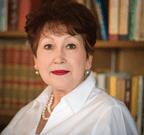
The cornerstone of the American Holocaust survivors’ legacy is the government sponsored Yom HaShoah commemorations. These government-backed commemorations were created as a means of engaging elected leaders and lawmakers with Jews. The American Holocaust survivors recognized that elected officials have the power to protect civil liberties, as well as to deny them. With this in mind, they created the centerpiece of the commemorative services, the Proclamation for Days of Remembrance, for memory and as a warning. The first Proclamation for Days of Remembrance in Kansas was signed by then Gov. John Carlin in 1982, marking this year as the 33rd annual event.
From the Proclamation I quote the following powerful declarations,
“…the Holocaust was the state-sponsored, systematic persecution and annihilation of European Jewry by Nazi Germany and its collaborators … {mprestriction ids="1,3"}the people of the State of Kansas should always remember the terrible events of the Holocaust and remain vigilant against hatred, persecution, and tyranny; and the Days of Remembrance have been set aside for the people of Kansas to remember the victims of the Holocaust, as well as to reflect on the need for respect for all peoples….”
These cautionary statements remind everyone of the fragile nature of societies. Our role as Jews is to be witnesses. We have been entrusted with important work. By being present at the official commemorations we demonstrate that we are seriously concerned and vigilant against intolerance. We recognize the warning signs of hate and discrimination.
We must, therefore, be closely engaged with our lawmakers and the law-making processes. A bill that recently passed into law in several states serves as a predictive example. The religious freedom law permits businesses to deny services to any person. Services can be denied based on an employee’s personal religious beliefs. This law is a license to discriminate; opponents say that employees can potentially show bias against someone from a different faith. This law should have a chilling effect on us as Jews. Not so long ago, in the 1930s and 1940s across Europe, hatred manifested itself with anti-Jewish laws. Anti-Jewish laws denied our loved ones of services and jobs, denied them of civil rights, and finally denied them of life itself. The American Holocaust survivors were exacting and precise in recognizing that the civil rights of citizens were vulnerable to the power of lawmakers. In a society that legally discriminates against its citizens, we must be vigilant and act accordingly as we elect legislators and stay connected during the law-making sessions.
The American Holocaust survivors created a legacy for Jewish social action for all generations. They created a legacy for Jews to be united in every state for every year. Our generation cannot allow this social and principled responsibility to fail. And it will fail if we do not recognize our purpose as Jewish witnesses at official Yom HaShoah observances. We must expect more from ourselves and what we are willing to do. We must be present to show lawmakers and Gov. Brownback that we are resolute and attentive to the ideals of freedom and to the laws that govern Kansans.
This year’s event will be held at 1 p.m. on Monday, April 20, at the State of Kansas Historical Museum in Topeka. Matthew Thompson, of the Dwight D. Eisenhower Presidential Library & Museum, will be the keynote speaker and the theme will be “Liberation 1945.” The event is free and open to the public. Groups are welcome; RSVP to Temple Beth Sholom (785-272-6040). Holocaust survivors, their sons and daughters, and the American World War II Veterans will be recognized.
Mary Greenberg, Ph.D. is a member of the State of Kansas Holocaust Commission. Her speaking engagements on anti-Semitism are based on her research, which advances the study of the Jewish people in the Diaspora.{/mprestriction}